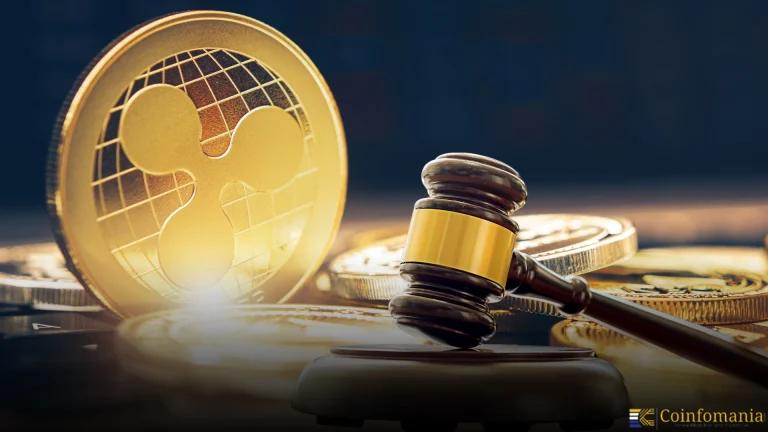Cryptocurrency Regulations in Russia
Russia takes a very complex and strategic approach to cryptocurrency. Despite having no rule against digital assets, it places super stiff regulations for using digital assets within the country. While trading cryptocurrency, it is approved and individuals can freely own it, 2024 is the first year it has become acceptable to use as a means […]

Russia takes a very complex and strategic approach to cryptocurrency. Despite having no rule against digital assets, it places super stiff regulations for using digital assets within the country. While trading cryptocurrency, it is approved and individuals can freely own it, 2024 is the first year it has become acceptable to use as a means of payment for international transactions, not domestic.
However, the country’s stance on these issues is dual one, reflecting the country’s attempt that the country protect its financial system, and, simultaneously, adapt to the external economic pressure, in particular that of sanctions, following the 2022 invasion of Ukraine. However, with global finance going digital, Russia is preparing to utilize crypto in lieu of geopolitical and economic advantage.
Besides, digital financial assets are also regulated by the Central Bank of Russia, the Ministry of Finance, as well as the Ministry of Digital Development. Importantly, the understanding of regulations is essential for businesses to comply and do business and for investors to invest in compliance with the regulations.
Historical Context
Russia’s journey with cryptocurrency started with a strong opposition. Crypto was seen as a threat to financial stability by the government in the mid-2010s. In 2018, the Central Bank of Russia (CBR) went so far as to suggest banning crypto trading and mining altogether, citing capital flight and illegal activity.
Yet, by 2020, the regulatory stance started to soften. Federal Law No. 259-FZ was introduced, which permitted ownership and trading of digital financial assets, but explicitly prohibited them as a payment method. This was the start of a more formal and structured regulatory framework.
The game changer was in the wake of severe sanctions after the Ukraine conflict. Russia’s exclusion from global systems like SWIFT further accelerated its interest in crypto as a tool for international finance. New laws in 2024 allowed digital currencies to be used for international trade, a move that combined economic necessity with digital opportunity.
Regulatory Framework
Several institutions are involved in Russia’s crypto regulation.
- The Central Bank of Russia (CBR) oversees the platforms, ensures they comply, and implements anti-money laundering (AML) policies.
- Ministry of Finance: Manages crypto-related taxation.
- Ministry of Digital Development: Registers mining activities and supervises digital infrastructure.
Crypto platforms are obliged to register with the CBR and obey Know Your Customer (KYC) rules. The Ministry of Digital Development must be registered in commercial mining operations. Mining at home is, however, allowed provided this does not go above set energy usage limits.
The tax rules classify crypto as property. From 2025, the crypto earnings will be taxed at 13% to 15% for incomes exceeding 2.4 million rubles. Assets obtained from mining were taxed based on the asset’s market value at receipt, and transactions over 600,000 rubles a year have to be reported. VAT does not apply to crypto.
At the moment, ICOs are not turned to legislation and STOs are.
Russia Crypto Policies
The Russian government is still cautious domestically. The country does not allow cryptocurrency to be used for the purchase of goods or services. The purpose of this restriction is to preserve the ruble as the only legal tender and to keep the state control over the financial system.
However, Russia has been very welcoming to crypto for international trade since 2024. This allows the country to avoid traditional financial channels and decrease dependence on U.S. dollar-based systems. In March 2025, reports also show that Russia has used Bitcoin in oil trade with China and India.
Crypto mining is legal and thriving. Now, Russia is the third largest Bitcoin mining country in the world. This sector has been encouraged by the government through energy partnerships, including Gazprom and Bitriver’s collaboration to set up natural gas-powered mining facilities. Mining has to be registered and taxation is based on the crypto’s market value at the time of mining.
At the same time, Russia is working on its own Central Bank Digital Currency (CBDC), the digital ruble. The digital ruble is set for mass deployment in July 2025 and is intended for state-controlled payments, with traceability and faster transactions, but is fundamentally different to decentralized cryptocurrencies.
The penalties for noncompliance with crypto regulations are severe. If a person does not declare income exceeding 45 million rubles in two or three years, he can be fined up to 2 million rubles, be forced to work, or be imprisoned for up to five years. Substantial financial penalties can even be incurred for even smaller infractions.
Country’s Approach to Crypto Innovation
Russia is very cautious about the use of crypto in retail but supports blockchain innovation and institutional adoption. The country launched a regulatory sandbox for companies to test blockchain and crypto technologies in 2020. Though activity has slowed, the sandbox has paved the way for blockchain to be adopted more widely in public infrastructure.
Russia is one of the countries with the highest crypto adoption indexes in the world. Crypto is used more and more by businesses for cross-border payments, particularly in trade-related sectors. Domestic restrictions have kept retail adoption more limited, but interest is high among young, tech-savvy consumers.
There are several government-led blockchain projects. CryptoVeche is one such example of a blockchain-based electronic voting platform. Other initiatives are aimed at integrating blockchain in logistics, customs clearance and record keeping, which are indicative of a broadening scope of experimentation and development.
Notable Challenges and Issues
Russia’s crypto activity is growing, but it’s still a long way from regulation and enforcement. A major challenge is the inconsistency between banning domestic payments and encouraging international usage. This regulatory contradiction can be confusing to users and businesses.
Enforcement remains a complex task. Because crypto is decentralized and borderless, it’s hard to trace illicit or undeclared transactions on peer-to-peer platforms and decentralized finance (DeFi) services.
The perception of cryptocurrency in the public is very positive, especially among the youth and the tech sector. But the state-controlled media has often portrayed crypto as risky or related to financial crime, as the tension between innovation and control continues.
Regulatory Trends and Future Outlook
Russia’s crypto policy is in a dynamic phase. In 2024, the government officially allowed the use of crypto in international trade. New rules to increase oversight on crypto-based foreign exchange transactions were introduced by early 2025.
In the future, the digital ruble rollout will focus its attention on state-sanctioned digital finance. ICOs may also be regulated more strictly by the government and KYC enforcement may be tightened to fit norms internationally.
Russia’s use of crypto to skirt sanctions could have far-reaching implications. Other countries under financial pressure may do the same, changing how crypto is used in global trade and diplomacy.
Conclusion
Russia’s regulatory framework is changing to allow restriction and opportunity to coexist. Crypto is playing an ever more important role in Russia’s international financial strategy, but domestic use is tightly controlled. For investors, businesses and crypto enthusiasts, it is important to keep abreast of these developments in order to navigate this rapidly changing landscape.
FAQs
1. Is crypto legal in Russia?
It is yes for holding, trading and mining. But it is prohibited from use in domestic payments.
2. Can Russians use Bitcoin to purchase products?
No, crypto cannot be used as a legal means of payment in Russia.
3. Is mining allowed in Russia?
It is legal and regulated, yes. The Ministry of Digital Development requires miners to register.
4. What is the crypto tax in Russia?
Crypto is taxed as property. The personal income tax is 13–15% depending on the total earnings.
5. Can the foreign exchanges work in Russia?
Only if they are registered with the Central Bank of Russia and only if they comply with local laws.
6. What is the digital ruble?
The Central Bank Digital Currency (CBDC) is to be issued by a state and launched nationwide in July 2025.
7. What happens if crypto income is not reported?
Failure to comply may lead to fines of up to 2 million rubles or imprisonment for serious cases.
8. Are ICOs allowed?
Although ICOs are not formally banned, there is no clear regulatory framework for ICOs as of now.
9. Can international trade use crypto?
Indeed, crypto has been allowed for cross-border transactions in Russia since 2024.
10. What is the reason behind Russia using crypto for trade?
To avoid international sanctions and to minimize reliance on traditional financial systems.
Follow us on Google News
Get the latest crypto insights and updates.
Related Posts

Ripple Highlights Custody as Key to $18.9T Tokenized Assets by 2033
Shweta Chakrawarty
Author

Hong Kong SFC Issues New Custody Rules for Crypto Platforms
Shweta Chakrawarty
Author

South Korea and Vietnam eye $150B trade despite Trump tariff
Shweta Chakrawarty
Author